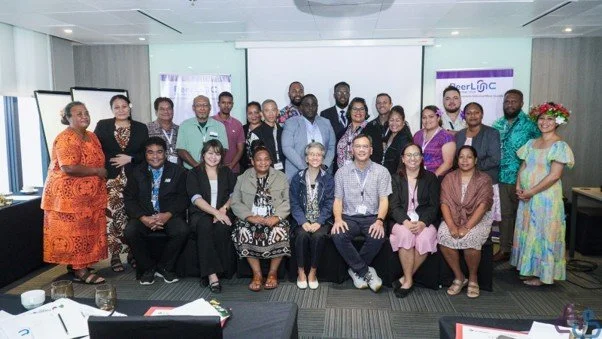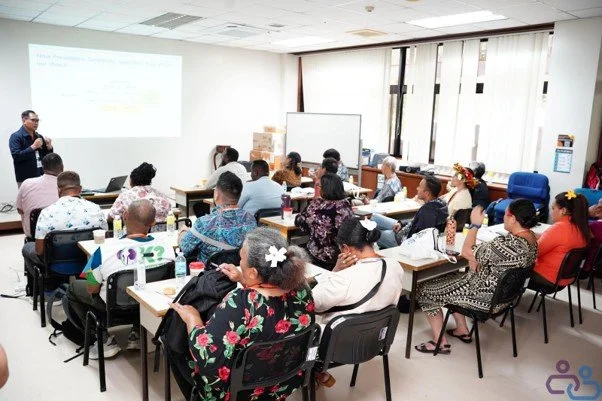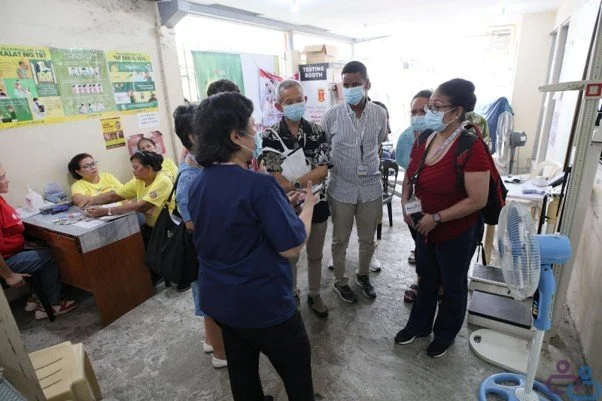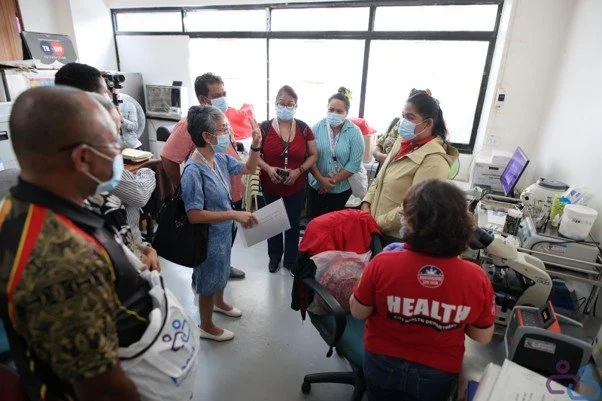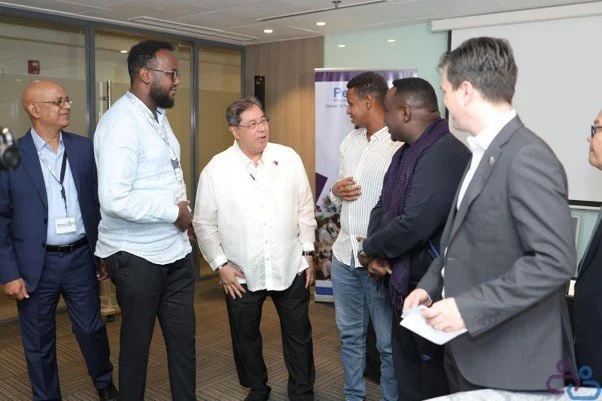Peer-to-Peer Collaboration Strengthens Regional TB Program Implementation Capacity in Somalia and the Pacific Islands
Health leaders from the Pacific Islands and Somalia gathered in Manila from October 6 to 10, 2025 for a regional training led by PeerLINC. The week-long program enhanced the capacity of National Tuberculosis Program (NTP) teams to implement shorter, all-oral treatment regimens for drug-resistant tuberculosis (DR-TB) in line with the World Health Organization (WHO) recommendations.
Supported by TB Alliance and held in collaboration with the Philippine Department of Health Disease Prevention and Control Bureau (DOH-DPCB), and the Tropical Disease Foundation (TDF), the training strengthened participants’ competencies in clinical management, active drug-safety monitoring and management (aDSM), laboratory systems, programmatic planning, and gender equality, disability, and social inclusion (GEDSI). Discussions focused on the rationale and evidence behind the BPaL/M regimens, the Philippines’ experience in scaling it up, and strategies for adapting similar approaches across diverse settings, from high-burden contexts like Papua New Guinea to other low-burden island nations.
Participants also witnessed how the Philippines operationalizes DR-TB care through field visits to key facilities. They observed patient management and decentralized care at Tibagan Health Center and Barangay Balong Bato Health Center in San Juan City, as well as at Block 37 Health Center and Block 39 Health Center in Mandaluyong City, where DR-TB treatment is delivered at the primary-care level. The group also visited the Mandaluyong City Rapid TB Diagnostic Laboratory (RTDL), the Tropical Disease Foundation Laboratory in Makati City, and the National Tuberculosis Reference Laboratory (NTRL) housed within the Research Institute for Tropical Medicine (RITM), gaining firsthand insight into WHO-recommended diagnostics, digital adherence technologies, and data systems that enable integrated, patient-centered care.
“Seeing firsthand how the Philippines manages DR-TB both in clinical and community settings has given our participants a more grounded understanding of what implementation really looks like. Peer learning is most powerful when it connects evidence with lived experience, and when countries can learn directly from one another.”
The welcome dinner, held after the first day of training, brought together distinguished guests including Philippine Health Secretary Dr. Teodoro Herbosa, TB Alliance Senior Vice President for Market Access Mr. Sandeep Juneja, TDF President Dr. Julius Lecciones, and Mr. Peter Adams, Counsellor for the Development Program of the Australian Department of Foreign Affairs and Trade (DFAT). Their presence underscored the value of collaboration and shared learning in advancing global TB control efforts.
“This is the first workshop I attended that helped me see the real world and talk to people on the ground—the engine room doing the hard work. Engaging with health workers helped me understand the real situation and ask relevant questions. Field visits were very relevant and gave me the chance to hear experiences from other countries.”
Twenty-one participants from eleven countries, including the Cook Islands, Fiji, Kiribati, Micronesia, Palau, Papua New Guinea, Samoa, Tuvalu, Vanuatu, New Caledonia, and Somalia, completed the program. Post-training assessments indicated a more than 130% improvement in knowledge scores, reflecting substantial learning gains across technical and programmatic areas. Participants described the training as “fruitful,” “fantastic,” and “highly recommended,” commending the mix of practical sessions and cross-country exchange that strengthened their confidence to apply the new regimens in their own programs.
“These field visits are the most enriching. I was so impressed by the nurse we met at the health center—how he managed his cases and kept records updated despite the large population he looks after. I am likely to recommend PeerLINC trainings to a colleague.”
This training leg reflects PeerLINC’s ongoing efforts to promote global collaboration and strengthen health systems through evidence-based, locally adapted solutions. Through continued partnership with national programs, TB Alliance, DFAT, DOH, and TDF, PeerLINC supports countries in advancing the scale-up of shorter, all-oral DR-TB treatments worldwide.

